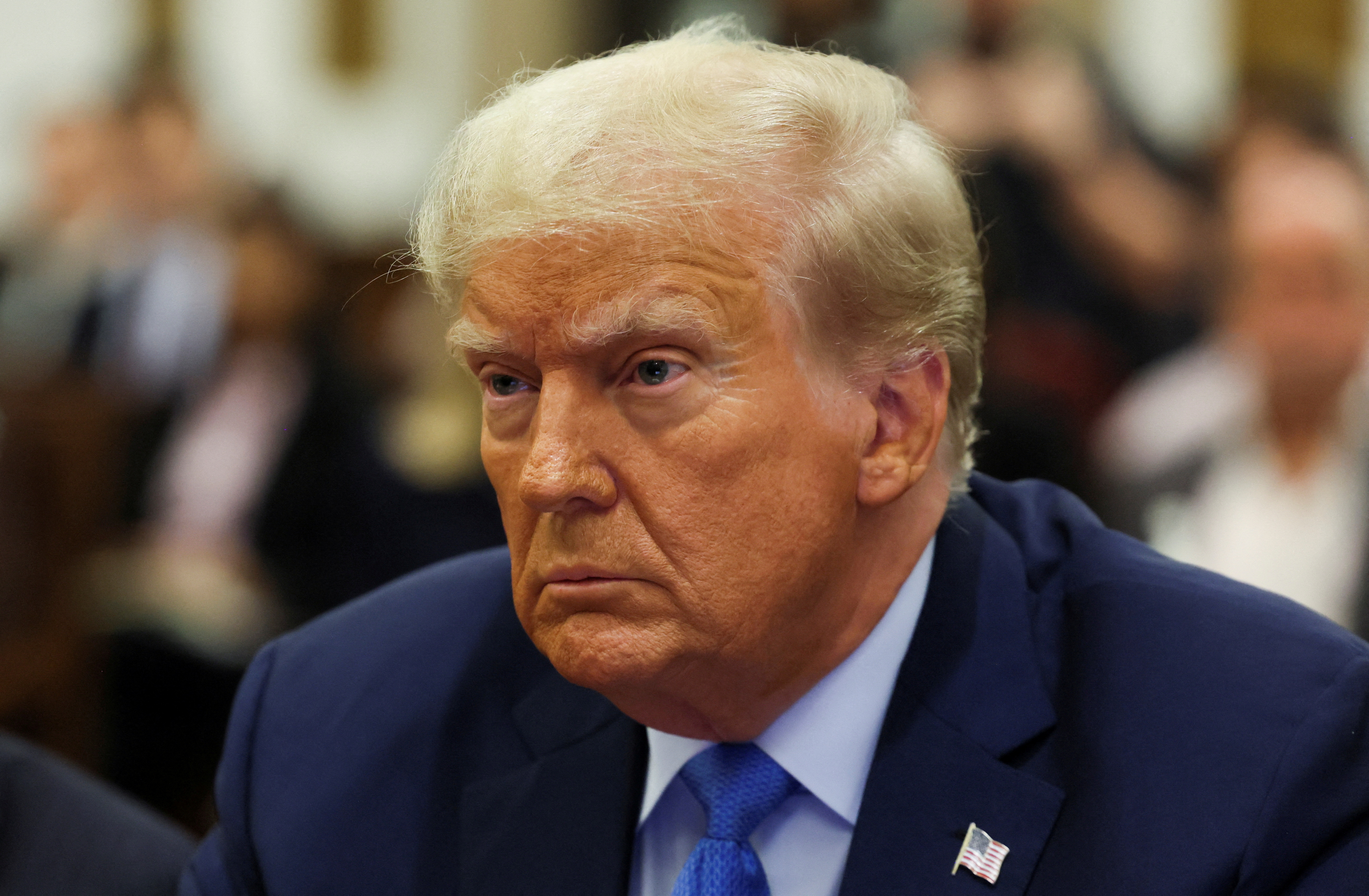Maine on Thursday became the second U.S. state to bar Donald Trump from a Republican presidential primary ballot, part of a flurry of legal challenges to his eligibility to run for president in 2024.
The challenges are being filed under a provision in the U.S. Constitution banning officials who have engaged in “insurrection” from holding public office.
Here is a look at some of the notable challenges under the provision known as Section 3 of the 14th Amendment and where they stand:
WHAT IS SECTION 3 OF THE 14th AMENDMENT?
Passed after the U.S. Civil War, Section 3 bars anyone from holding public office if they engaged in “insurrection or rebellion” after previously swearing an oath in support of the United States.
The provision was enacted in 1868 to prevent former members of the pro-slavery Confederacy from serving in the U.S government.
Advocacy groups and some anti-Trump voters have brought legal challenges to Trump’s 2024 presidential campaign in several states based on Section 3, arguing that then-President Trump engaged in insurrection when he urged his supporters on Jan. 6, 2021, to go to Washington and stop Congress from certifying the November 2020 election won by Democrat Joe Biden.
A mob of his supporters then stormed the U.S. Capitol and were unsuccessful in blocking the certification.
WHAT DID MAINE RULE?
The state’s top election official, Democrat Shenna Bellows, granted a challenge from a group of former state lawmakers who argued that Trump, the frontrunner for the Republican presidential nomination, was not qualified to serve as president again under Section 3.
Bellows ordered Trump kept off the ballot for the March 5 Republican primary but put her ruling on hold to allow Trump to appeal to a state court.
HAVE ANY OTHER STATES DISQUALIFIED TRUMP?
Colorado become the first state to exclude Trump from a primary ballot. The state’s highest court ruled on Dec. 19 that Trump engaged in insurrection.
Colorado is viewed as a safely Democratic state in the November 2024 general election, meaning Biden would be expected to carry the state regardless of whether Trump is on the ballot.
The court paused its ruling to allow Trump to appeal to the U.S. Supreme Court, which the former president indicated he would do. The Colorado Republican Party filed its own appeal to the Supreme Court on Dec. 27, clearing a path for Trump to remain on the primary ballot despite the state court ruling.
WHAT IS TRUMP’S DEFENSE?
Trump and his allies have criticized disqualification cases as undemocratic and part of a conspiracy by his political rivals to keep him out of office.
His lawyers have argued that only Congress can enforce Section 3 and that presidents are not subject to disqualification. A lower court judge in Colorado agreed that Section 3 does not apply to presidents before that ruling was overturned by the state’s top court.
Trump’s legal team also disputes that he engaged in insurrection, arguing that Trump was exercising his First Amendment right to free speech on Jan. 6.
Trump has pleaded not guilty to criminal charges accusing him of conspiring to overturn the 2020 election results but has not been charged with insurrection.
WHAT HAPPENS NEXT?
The Maine decision will be reviewed by state courts.
The U.S. Supreme Court is likely to take the Colorado case given its political importance and the unsettled legal questions it raises.
It is not clear how the Court would rule, but it is dominated by a conservative majority that includes three Trump appointees. The court may not need to decide whether Trump engaged in insurrection and could rule narrowly that Section 3 does not apply to presidents or that it cannot be enforced by courts.
A ruling that Trump is disqualified from the presidency would be momentous step with seismic political implications.
WHICH STATES HAVE REJECTED BALLOT CHALLENGES?
Lawsuits in several states seeking to keep Trump off primary ballots have failed. Courts in Minnesota and Michigan ruled that Trump could not be excluded from the primary but allowed challengers to revive their cases for the November 2024 general election if Trump is the Republican nominee.
Courts in both states ruled that Trump’s eligibility for the presidency under the U.S. Constitution was not relevant to internal party primaries.
Michigan is considered one of the hotly contested states that can swing to either Democrats or Republicans and likely to decide the outcome of the general election.
Some state election officials have also turned aside efforts to keep Trump off the ballot. California Secretary of State Shirley Weber on Thursday announced that Trump would be included on the list of candidates in that state’s Republican primary. California is a Democratic stronghold in general elections.
WHERE ELSE ARE CASES PENDING?
Challenges to Trump’s eligibility have been filed in at least 12 states. One of the more closely watched cases is in Oregon, where the state Supreme Court is poised to decide in the coming days whether to consider a lawsuit seeking to disqualify Trump from the state’s primary ballot.







Click here to change your cookie preferences